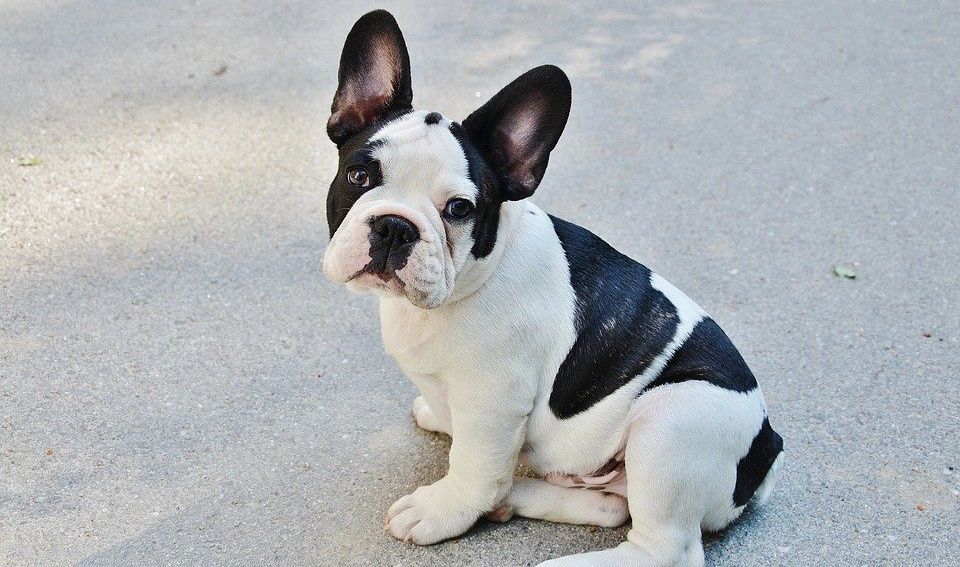Sorry, Labradors. After 31 years, America has a new favorite dog.
The American Kennel Club has crowned a new favorite.

A sad-looking Labrador Retriever
The sweet-faced, loveable Labrador Retriever is no longer America’s favorite dog breed. The breed best known for having a heart of gold has been replaced by the smaller, more urban-friendly French Bulldog.
According to the American Kennel Club, for the past 31 years, the Labrador Retriever was America’s favorite dog, but it was eclipsed in 2022 by the Frenchie. The rankings are based on nearly 716,500 dogs newly registered in 2022, of which about 1 in 7 were Frenchies. Around 108,000 French Bulldogs were recorded in the U.S. in 2022, surpassing Labrador Retrievers by over 21,000.
The French Bulldog’s popularity has grown exponentially over the past decade. They were the #14 most popular breed in 2012, and since then, registrations have gone up 1,000%, bringing them to the top of the breed popularity rankings.
The AKC says that the American Hairless Terrier, Gordon Setter, Italian Greyhound and Anatolian Shepherd Dog also grew in popularity between 2021 and 2022.
The French Bulldog was famous among America’s upper class around the turn of the 20th century but then fell out of favor. Their resurgence is partly based on several celebrities who have gone public with their Frenchie love. Leonardo DiCaprio, Megan Thee Stallion, Alexandra Ocasio-Cortez, Reese Witherspoon and Lady Gaga all own French Bulldogs.
The breed earned a lot of attention as show dogs last year when a Frenchie named Winston took second place at the Westminster Kennel Club Dog Show and first in the National Dog Show.
The breed made national news in early 2021 when Gaga’s dog walker was shot in the chest while walking two of her Frenchies in a dog heist. He recovered from his injuries, and the dogs were later returned.
The French Bulldog's complicated past took them from brothels (yes) to royals.
— American Kennel Club (@akcdoglovers) March 16, 2023
Listen to their full history and more in the Uniquely Urban podcast episode of Down & Back: https://t.co/Jx2jPNCVMb pic.twitter.com/wBQd9fsRlt
They’ve also become popular because of their unique look and personalities.
“They’re comical, friendly, loving little dogs,” French Bull Dog Club of America spokesperson Patty Sosa told the AP. She said they are city-friendly with modest grooming needs and “they offer a lot in a small package.”
They are also popular with people who live in apartments. According to the AKC, Frenchies don’t bark much and do not require a lot of outdoor exercise.
The French Bulldog stands out among other breeds because it looks like a miniature bulldog but has large, expressive bat-like ears that are its trademark feature. However, their popularity isn’t without controversy. “French bulldogs can be a polarizing topic,” veterinarian Dr. Carrie Stefaniak told the AP.

An adorable French Bulldog
via Pixabay
French Bulldogs have been bred to have abnormally large heads, which means that large litters usually need to be delivered by C-section, an expensive procedure that can be dangerous for the mother. They are also prone to multiple health problems, including skin, ear, and eye infections. Their flat face means they often suffer from respiratory problems and heat intolerance.
Frenchies are also more prone to spine deformations and nerve pain as they age.
Here are the AKC’s top ten most popular dog breeds for 2022.
1 French Bulldogs
2 Labrador Retrievers
3 Golden Retrievers
4 German Shepherd Dogs
5 Poodles
6 Bulldogs
7 Rottweilers
8 Beagles
9 Dachshunds
10 German Shorthaired Pointers
This article originally appeared last year.
- Service dogs enjoy a performance of ‘Billy Elliot’ to learn how to behave in a theater ›
- The American Rescue Dog Show has a 'Best Underbite' category and we're in love ›
- Why do small dogs live longer than large ones? - Upworthy ›
- America's taste in ethnic food is changing - Upworthy ›
- Architect explains why all American diners look the same - Upworthy ›
- 2023's 'World's Ugliest Dog' contest winner is named Scooter - Upworthy ›
- Dog mom sings 'so brave' jingle to fearful pup on TikTok - Upworthy ›
- Woman films her dog watching 'Lion King' death scene - Upworthy ›
- Three places you must wash - Upworthy ›
- Couple who rescued German shepherd left as 'bear bait' have a message for the previous owners - Upworthy ›

 Duran Duran 80S GIF
Duran Duran 80S GIF Duran Duran GIF
Duran Duran GIF Joe Heller's obituary photoImage via the Hartford Courant obituaries
Joe Heller's obituary photoImage via the Hartford Courant obituaries  Stuck on you! #snoopy #woodstock #stickers #forsale #colle… | Flickr
Stuck on you! #snoopy #woodstock #stickers #forsale #colle… | Flickr A hoarder's garageImage via Canva
A hoarder's garageImage via Canva Ronnie Archer-Morgan on an episode of the BBC's Antiques RoadshowImage via Antqiues Roadshow
Ronnie Archer-Morgan on an episode of the BBC's Antiques RoadshowImage via Antqiues Roadshow  Ronnie Archer-Morgan holds the ivory bracelet he refused to valueImage via Antiques Roadshow/BBC
Ronnie Archer-Morgan holds the ivory bracelet he refused to valueImage via Antiques Roadshow/BBC Young girls line up to play volleyballImage via Canva
Young girls line up to play volleyballImage via Canva